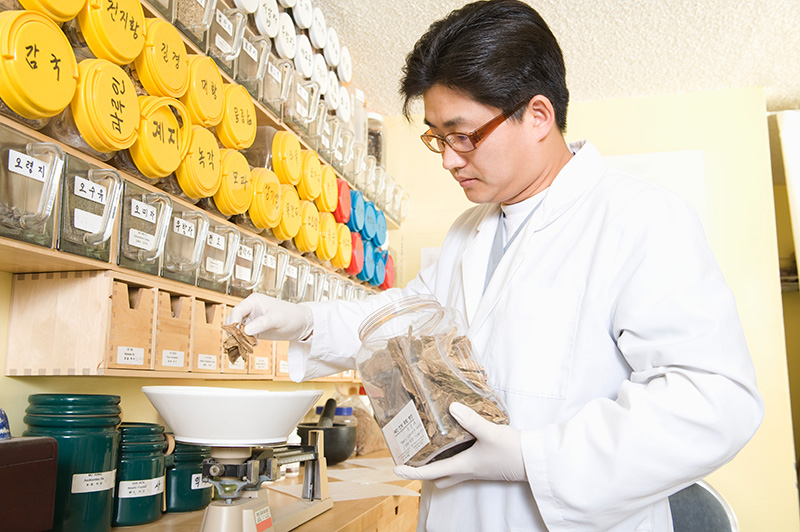Yin &Yang
The Yin-Yang theory was one of several outlooks on nature developed in ancient China. It holds that every object and phenomenon in the universe consists of two opposite aspects, Yin and Yang. These elements, though actively interdependent, are simultaneously in conflict. Because this relationship is evident in all objects and phenomena, it is considered to be the Universal Law of the material world. In Western science, there is similar acknowledgement that for every action, there is a reaction, and that opposing forces are held in balance.
The Five Elements
There are Five Elements which are the basic materials constituting the material world. These are: wood, fire, earth, metal and water. There exists among them an interdependence and mutual restraint, which determines their state of constant motion and change.
The Theory of Five Elements is used as a guide in TCM practice to recognize and interpret the relationships between the tissues and organs of the body and human emotions, and to understand the relationship between the human body and its environment.
Zang-Fu
The TCM term Zang-Fu (literally “Internal Organs”) refers to the major internal organs. It also serves as a generalization of the physiological functions of the human body.
The Heart, Liver, Spleen, Lungs, Kidneys and Pericardium grouped together are known as the Six Zang Organs. Their main physiological functions are the manufacturing and storage of essential substances, including Qi, Blood and bodily fluids.
The Small and Large intestines, Gallbladder, Stomach, Urinary Bladder and San Jiao are known collectively as the Six Fu Organs. Their main function is the reception and digestion of food, absorption of nutrients, and the transit and excretion of wastes.
TCM seeks to identify any problem among the Six Zang Organs and the Six Fu Organs via analysis of symptoms and physiological manifestations.
Qi and Meridians
Traditional Chinese Medical theory holds that our life energy “Qi” (pronounced chee), flows throughout the body. Qi flows along specific pathways called “Meridians”. Acupuncture works by stimulating energy flow at certain points on the meridians and in some cases, that stimulation removes the blockages of energy flow which enable the body to pursue its own healing.
Qi, Blood and Fluids
Qi, Blood and body fluid are fundamental substances in the human body. They sustain normal vital activities. Their existence and function, especially those of Qi, generally manifest in the functional activities of various tissues and organs. Qi, Blood and body fluid, together with the Zang-Fu organs, the Meridians and collaterals, constitute the theoretical basis of human physiology in TCM.
Any deficiency or excess in any of these substances cause disease. TCM applies this theory both to diagnose and to treat disease.

